Seven UG/UMCG researchers awarded Vidi grants
The Dutch Research Council (NWO) has awarded a Vidi grant of €800,000 to Simon Friederich, Zoltán Lippényi, Maria Mazzoli, Sofia Ranchordás, Ward Romeijnders, Marie-José van Tol and Sandy Schmidt. With this grant, the researchers can develop their own innovative five-year research plans and can establish their own research groups.
Vidi grants are intended for experienced researchers who have been conducting successful research for some years after gaining a PhD. Alongside the Veni and Vici grants, the Vidi grant is part of the NWO Talent Programme. Within this programme, researchers are free to submit their own topics for funding. In total, 625 researchers submitted their research proposals in the hope of acquiring funding during this round of Vidi applications. 101 of these proposals were honoured.
UG/UMCG researchers who have been awarded a Vidi grant:
Dr Simon Friederich - Saving reality with exotic causality

Quantum theory is the framework for all modern physics. As such, it is extremely successful. But that success is puzzling because quantum theory seems in tension with an idea that science otherwise takes for granted: that there is a single objective reality. This research sets out to fulfil a hope of Einstein: to develop an interpretation of quantum theory as an unproblematic probabilistic theory of a single reality. Such an interpretation will likely entail some exotic form of causality, either unmediated action at a distance, or perhaps even causal influences backwards in time.
Zoltán Lippényi, PhD - Do corporate boardroom quotas impact gender equality beyond leadership?
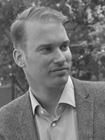
A growing number of European countries adopt corporate boardroom quota’s to ensure a more equal representation of women in leadership positions. It is unknown in what ways quota’s impact inequality in earnings and job careers between men and women beyond the leadership of large enterprises. This research project creates a new data infrastructure linking administrative data and surveys to map out multiple pathways how the impact of quota’s trickle down within organizations and spill over within the business community.
Dr Maria Mazzoli - Word formation in polysynthetic languages
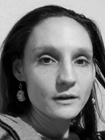
Polysynthetic languages can build very complex words which translate as entire sentences in languages like English and Dutch. Little is known about how these languages form new complex words based on established language patterns. This project surveys three polysynthetic languages, to check whether the productivity of word formation patterns is related to their levels of activation in language processing. Most polysynthetic languages are currently endangered. Knowledge about polysynthetic word formation will be instrumental in producing pedagogical resources to foster language learning, in collaboration with the communities in which fieldwork is conducted.
Prof. Sofia Ranchordás - Vulnerability in the Digital Administrative State
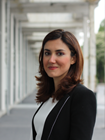
Digital government often incorrectly assumes that citizens have access to the Internet, have average literacy and digital skills, and can exercise their rights before public bodies. However, at some point in their lives most citizens will struggle with exercising their rights before government, particularly when they are required to engage with complex digital forms. This project conceptualizes the concept of administrative vulnerability as a new form of inequality and investigates how this problem can be solved.
Dr Ward Romeijnders - Promising algorithms for supporting decision making under uncertainty
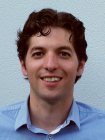
A major uncertainty for decision makers is that it is unknown what the future will bring. However, mathematical techniques can be used to calculate optimal decisions based on trends, probability distributions and scenarios to minimize costs or risks. This can be of considerable help in decision making where major interests are at stake, but it is not feasible with the current state of science. Using a smart idea, researchers at the University of Groningen will develop promising new algorithms. These will be applied to design a hydrogen supply chain for the Northern Netherlands and to asset-liability management for pension funds.
Prof. Marie-José van Tol (UMCG) - Take it personally: A cognitive neuroscience approach to getting a grip on depression
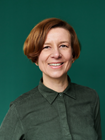
Complete recovery in daily life functions is difficult to obtain after a depression. Staying focused and getting things done remains challenging for long, which puts an individual at risk for relapse. This project aims to elucidate how the brain can enter a focused mode more easily and investigates how setting important personal goals can help achieve that. This could help to recover fully and to prevent relapse.
Dr Sandy Schmidt - Teaching enzymes new tricks
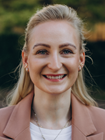
The pharmaceutical and chemical industries are highly polluting industries. The use of nature’s catalysts (enzymes) can play a major role in solving this problem. Yet, several traditional chemical reactions cannot be performed by existing enzymes. This project aims to expand the catalogue of enzymes and teach them new tricks to manufacture pharmaceuticals, fine chemicals, and cosmetics of our everyday life in a sustainable way.
| Last modified: | 07 May 2024 10.59 a.m. |
More news
-
10 June 2024
Swarming around a skyscraper
Every two weeks, UG Makers puts the spotlight on a researcher who has created something tangible, ranging from homemade measuring equipment for academic research to small or larger products that can change our daily lives. That is how UG...
-
21 May 2024
Results of 2024 University elections
The votes have been counted and the results of the University elections are in!
